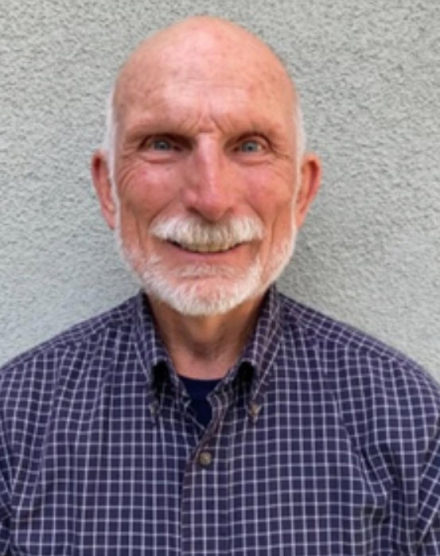By Garry G Garretson
What does a Navy Vietnam combat veteran do to follow up his service to his country? After Carl Kloss was honorably discharged from the Navy, he contributed in a very meaningful way in an engineering career integrating science instruments onto spacecraft which the Jet Propulsion Laboratory sent to Mars, Jupiter, Saturn, Uranus, and Neptune. After that lengthy career, it was time for retirement, right? Not for Carl! He saw an ad for Voices For Children seeking Court Appointed Special Advocates (CASA) for foster children. The nonprofit organization, which serves both San Diego and Riverside Counties, transforms the lives of abused, abandoned, or neglected children by providing them with trained, volunteer CASA’s.
Carl has supported ten children in foster care and the juvenile justice system over the last eight years, including two sets of siblings. It is incredibly special to be writing this on March 29th, Vietnam Veterans Day, as Carl served in Danang, Vietnam aboard an LSD (Landing Ship Dock). Carl lives in Carlsbad with his wife. They have two adult daughters who are both teachers.
Children most often enter foster care through no fault of their own because they were abused, neglected, or abandoned and are unable to continue living safely with their families. There are currently more than 400,000 children in the foster care system in the United States. They range in age from infants to 21 years old. The average age is eight years old. There are more boys than girls. White children make up 38%, Black children 40%, Hispanic children 15%, and others are 7%. There are over 2750 children and teens in the San Diego foster care system with over 20% needing medical care due to the trauma they have experienced.
Sometimes children enter foster care due to law breaking and end up on probation, some of whom are supported by CASA’s. Carl is a trained advocate and has mentored children in the juvenile justice system and the foster care system. He spends time with the children at sporting events, museums, helping with education attainment, and has been a consistent, caring adult in their lives.
To be a CASA requires no special prior experience, and CASAs are people of all ages, and from every walk of life. Individuals apply to become a CASA and, if accepted into training, attend “Advocate University”—a free, specialized training program of Voices for Children. Training encompasses approximately 35 hours—half in a classroom (currently via Zoom) online. If training is successfully completed, the new CASA is sworn in by a Superior Court Judge and becomes an “Officer of the Court”. Voices for Children matches the CASA volunteer with a child or sibling group, and the advocacy begins. The court authorizes them to become involved in all aspects of the child’s case and gain access to their records. They also have access to schools, school records, medical professionals, and anyone else involved in the child’s life.
As a Juvenile Court’s eyes and ears for the children in foster care, these volunteer advocates speak up on their child’s behalf and help them through what is often a confusing and scary time.
Nationally, the turnover rate for foster parents ranges from 30 percent to 50 percent. That is another reason the system is struggling so much: more kids in it, less people to take care of them. Children in the Foster Care system are faced with seven core issues: loss, rejection, shame and guilt, grief, identity, intimacy and mastery and control. The average child spends over a year in foster care. More than half of the foster care children will be united with their parents or primary caregivers, while more than one quarter will be adopted, many by the foster parents. Each year approximately 20,000 youth will age out of the foster care system when they turn 18 or 21, or when they finish high school (depending on the state in which they live). These children are at increased risk of poor education outcomes, experiencing homelessness, and being unemployed. Advocates like Carl reduce those failures. When youth in foster care have a consistent adult in the life who can advocate on their behalf, they are more likely to feel supported and have a better outcome. Advocates like Carl help transform lives.
Readers may ask what “they” can do to care for the local children in the foster care system. Carl says,
“here am I, how can I help?”
over the last seven years. The challenge is what are you going to do to help. There are non-profit organizations, group homes, temporary foster parents and those who adopt children into their families. Donations for the children are needed and welcome. Which opportunity to serve has your name on it, asks 2750 foster care children in San Diego County. My local bible study group from our church recently gathered over twenty-five suitcases and donated them to a local group home where children were moving around and were using plastic bags for their personal items.
Additionally, the organization is in high need of male CASA volunteers. Last year, Voices for Children CASA’s and staff advocated on behalf of more than 2500 children in foster care across San Diego and Riverside Counties. For more information, visit www.speakupnow.org and “serve our foster care children like Carl does”.


















